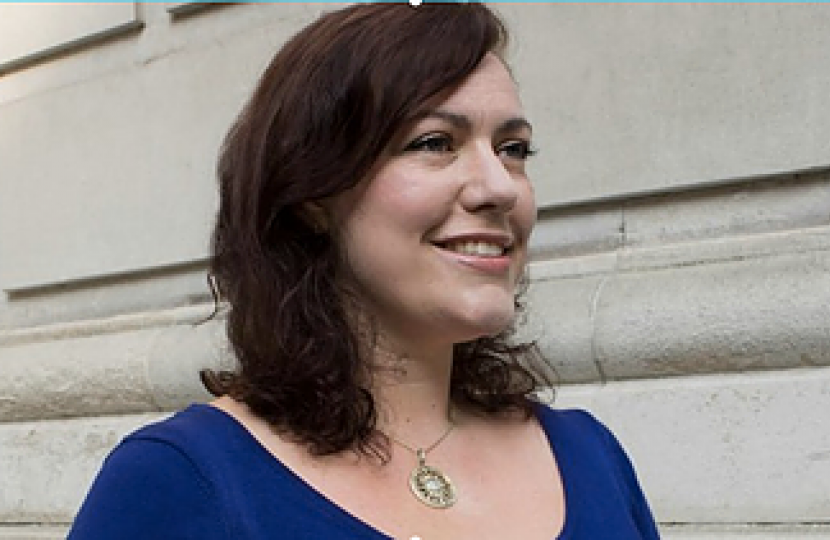
Earlier this week I was interviewed by WeAreTheCity about careers, women in the workplace, and my aspirations for the future. Here is the interview in full:
“I made it my job to tell the world that Russia was not bombing ISIS” | Alicia Kearns talks career highlights, counter-terrorism campaigns and helping refugees'
Over her career, Alicia Kearns has certainly helped a great number of people. Through her various roles, her hard-hitting and award-winning campaigns have driven behavioural changes to support and protect our communities.
She has been responsible for a number of counter-terrorism campaigns, led communications on Syria and Iraq, delivered projects supporting survivors of crime and managed youth movements.
Alicia is currently Director at Global Influence, having joined from the Foreign and Commonwealth Office (FCO) in early 2016.
Global Influence focuses on government and defence influence solutions, with a particular focus on counter-terrorism, counter violent extremism, stabilisation and political campaigning.
In her previous roles at the FCO and the Ministry of Defence (MoD), she led the UK Government’s communications campaigns on Syria and Iraq, as well as advising over 70 international Governments on counter-terrorism.
Having worked in such volatile situations, Alicia has seen some very violent and horrific crimes against humanity. Despite all this, she describes it is a necessary evil in order to tell people’s stories.
She said, “I think my career highlight is that I am giving victims and people a voice, where they can say ‘thank you for telling my story.”
One particular moment within her career that stands out for Alicia, is during her campaign on Syria. She says, “I made it my job to tell the world that Russia was not bombing ISIS but ordinary people.”
As a result of this highly successful campaign, during a Press Conference (corrected from interview) Russia referred to Alicia as a, “fully militarised platoon” – a moment she cannot help but be proud of.
Career Goals
With such an impressive CV, anyone would be surprised to hear that this wasn’t Alicia’s original career plan. In 2003, the Guardian highlighted her as one of 16 ‘Young People to Watch’, in which she described her dreams to become a lawyer.
She said, “I always wanted to be a barrister and wanted to work at Liberty – it’s always been my dream.”
“But I graduated at the height of the recession, and was only offered an internship earning £50.”
Coping with stress
Working in challenging and high stakes environments is certainly stressful.
For Alicia, however, as long as she remains passionate, the stress is worthwhile.
She said, “With me I have to love it, and as soon as I stop loving it, that’s it,”
“As long as you love it, the stress is worthwile.”
“I’ve seen a lot of horrific things, and I think the stress you feel is about whether you are helping people enough.”
“If you can empathise with the people you are helping then it makes it all worthwhile.”
Stress and work-life balance often go hand-in-hand. Alicia admits that maintaining a balance is something that she sometimes struggles with and it has previously made her ill.
She said, “I didn’t recognise that I needed a break.”
However, this is something that she has improved on and has found a way to remain passionate about helping people through both her professional and personal life. She said, “By spending my time with people who inspire me, I feel I don’t need to struggle to gain a work-life balance.”
In her personal life, Alicia recently volunteered in Greece to help refugees who were seeking aid. Describing the experience, she said, “It’s the small things. While working with refugees there were 75 unaccompanied minors and I think one of the proudest moments was when one of the boys suddenly called me ‘auntie”
“It was amazing to build a relationship with them.”
“They deserve a future.”
Alicia has maintained her relationship with some of the refugee children she met, and even went out to see them at Christmas. She credits modern technology for making it possible, saying, “They know they can send across a WhatsApp or Skype message at anytime.”
Challenging stereotypes
Working in a traditional male-dominated industry, Alicia has faced stereotypical and derogatory views. However, her overall experience has been a positive one, with men helping to build her up and watch her succeed.
She said, “I have been very lucky to work with respectful individuals.”
“My greatest mentors have been men.”
Mentoring is something that Alicia has grabbed with both hands. She particularly credits Helen Grant MP, as being a great champion and an “incredible lady.”
She advises those looking for a mentor to just have the confidence to ask, saying, “There is no reason to be afraid of mentors.”
“A mentor is just a friend who can help you to advance your career.”
What’s next? Alicia shows no signs of stopping her career trajectory and says that, “In five years time, I want to be able to say that I showed empathy and compassion.”


